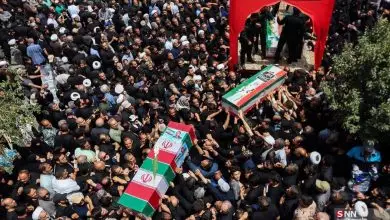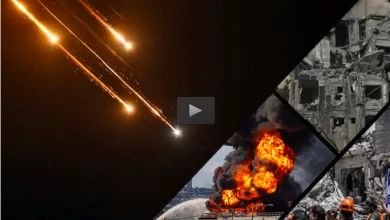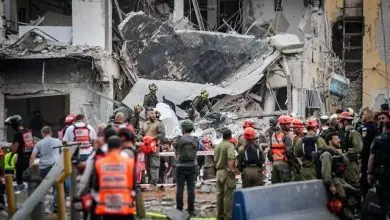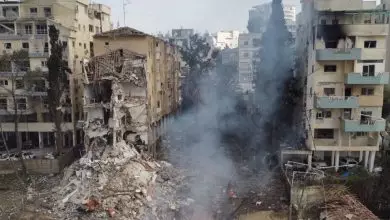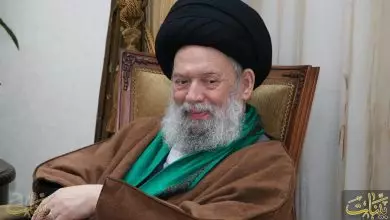Senior Cleric Stresses Futile Nature of Holding Political Talks with US
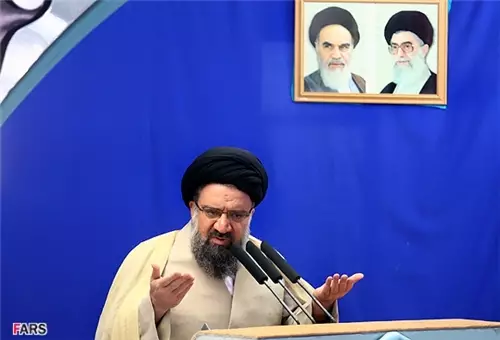
Tehran’s provisional Friday Prayers Leader Ayatollah Seyed Ahmad Khatami underlined the futility of political talks with the US, and said that Washington is not really looking for resumption of ties with Tehran.
Addressing a large and fervent congregation of the people on Tehran University campus on Friday, Ayatollah Khatami said, “The US is not looking for negotiations, but it is after domination because at the negotiating table they say that the other side should just listen to them and implement it.”
Ayatollah Khatami pointed to recent statements of Supreme Leader of the Islamic Revolution Ayatollah Seyed Ali Khamenei who categorically rejected the possibility of holding political talks with the US, and said, “The Supreme Leader made valuable remarks that can become charter of Iran’s foreign diplomacy.”
The provisional Friday prayers leader underlined that the US will take the dream of establishing relations with Iran to grave.
On Wednesday, Supreme Leader of the Islamic Revolution Ayatollah Seyed Ali Khamenei categorically rejected political negotiations with the US, cautioning that talks with Washington are harmful to Iran.
“Relations with the US and negotiations with that country, except for very specific cases, don’t have any benefits for the Islamic Republic and it is even harmful; which wise person would go after a futile job,” Ayatollah Khamenei said, addressing Iran’s diplomatic corps abroad in Tehran.
“Some people pretended that if we sit to the negotiating table with the Americans, many problems will be settled; of course, we knew that it is not correct but the events during the recent years has now proved this reality several times,” he added.
Ayatollah Khamenei referred to the nuclear talks held between Iran and the world powers, including the US, in the current year, and said the meetings and contacts with the Americans in this period not only proved futile, but also emboldened the US officials to raise extensive demands from Tehran.
“Generally speaking, it was revealed that despite the imaginations of certain people, negotiations won’t help anything,” he underlined.
The Leader expressed anger that during the negotiations with Iran, the Americans intensified their sanctions against Iran, saying that the talks for relieving the pressures and embargoes against Tehran yielded no results.
Elaborating on the damages inflicted on Iran by holding negotiations with the US, he said such talks will display us before the eyes of the world public opinion as capricious people and the westerners also display Iran as a passive and double-standard government through their extensive propaganda.
“As long as the status quo, that is to say the US animosity and the hostile statements of the US administration and Congress on Iran continue, (Iran’s) interaction with them will be unjustified,” the Iranian Supreme Leader stressed.
The United States and Iran broke diplomatic relations in April 1980, after Iranian students seized the United States’ espionage center at its embassy in Tehran. The two countries have had tense relations ever since, but have shown willingness to attend talks to help resolve regional issues, including security in Iraq. Yet, the two countries have avoided talks on bilateral issues for the last thirty years.
Iran and the six world powers, including the US, have so far had years of negotiations over Iran’s nuclear advancements.
In the latest case, Iran and the G5+1 had over two weeks of negotiations in Vienna last month with no final agreement between the two sides, although they extended their July 20 deadline for a few more months.
During the talks, a senior member of the Iranian team of negotiators stressed that the excessive demands made by the other side are the root cause of the differences between Tehran and the world powers.
At the end of their talks, the two sides agreed to extend the talks till November 24 for brokering a final deal.
Zarif and EU foreign policy Catherine Ashton in a joint statement after over two weeks of talks stressed the need for more efforts and time to reach an agreement with the world powers over Tehran’s nuclear program.
Due to certain differences over some fundamental issues the two sides agreed to extend the Joint Plan of Action by November 24, they added.

